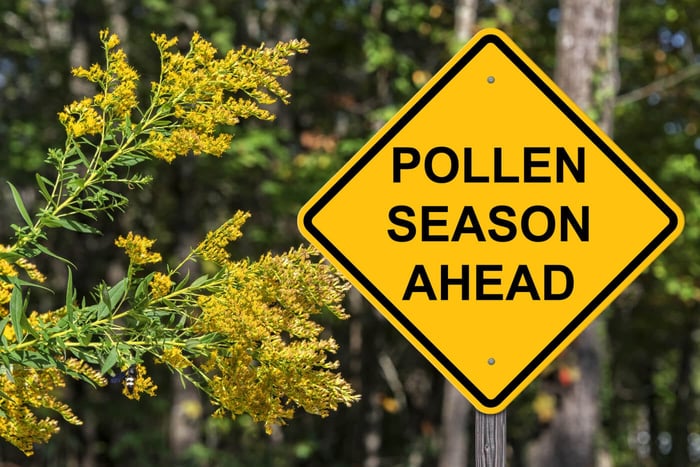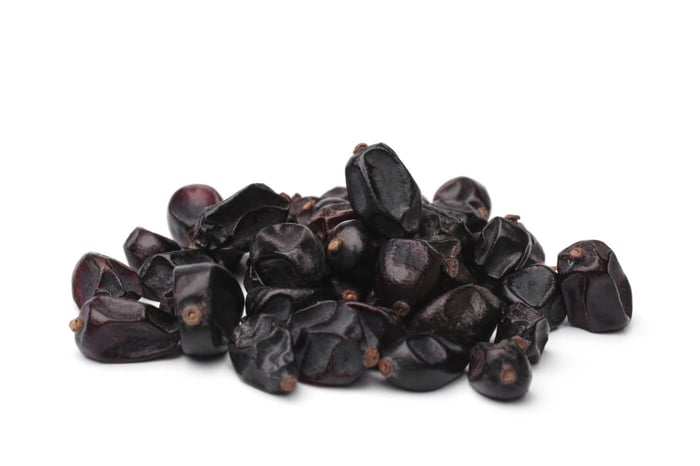As spring blooms and the smell of fresh blossoms fill the air, many of us find ourselves sniffling and sneezing instead of enjoying the beauty spring has to offer. That makes you one of about 50 million Americans dealing with allergies as the seasons shift.
Yes, you guessed it – it's allergy season again. But don’t worry! We’re sharing some helpful tips that (hopefully) can breeze through this time of year with ease.
Let's start by understanding what seasonal allergies are, their common causes, and tips to help keep them at bay.
Seasonal Allergies: The Lowdown

Seasonal allergies are your body's immune response to allergens which are treated as intruders, triggering chemical releases including histamines and other inflammatory chemicals responsible for the common “allergy” symptoms.*†
Some of the more common symptoms may include:*†
- Sneezing
- Congestion
- Runny or stuffy nose
- Itchy, watery eyes
- Scratchy throat
- Fatigue
However, allergic reactions vary depending on how much of a “threat” your body thinks the allergen is. Resulting in mild symptoms (like the above list), or more severe reactions that can affect breathing.*†
Common Causes of Seasonal Allergies

But what exactly causes this immune overreaction? While the specific triggers can vary from person to person, some of the most common culprits include:
- Tree pollen (especially from birches, oaks, elms, and maples) typically appears in spring.*†
- Grasses shed pollen in late spring and summer.*†
- Ragweed produces pollen in the fall.*†
- Mold spores often cause seasonal allergies during the spring, summer, and fall. They may also cause year-round allergies for people who live in buildings with too much moisture. Signs of excess moisture include high indoor humidity, water damage, or poor ventilation. *†
Natural Help for Allergy Relief

Now that we've covered the basics, let's explore some ways that may help alleviate your allergy symptoms and restore your sense of well-being:
1. Quercetin: Nature's Antihistamine:
Meet Quercetin – the secret weapon against seasonal allergies. Quercetin, an antioxidant found in many fruits and vegetables, may help reduce the risk of you getting sick. It does this by neutralizing free radicals which are particles that cause damage to our cells’ membranes or kill our cells.*†
Quercetin also has known anti-viral abilities shown to help strengthen how the immune system responds. Studies show that allergy symptoms like asthma can be helped with the use of quercetin, as it helps restrict histamine from being released from the cells.*†
2. Local Honey:
They say a spoonful of honey keeps the allergies at bay – and there's some truth to that. Consuming locally sourced honey, which contains trace amounts of pollen from your area, may help desensitize your immune system to seasonal allergens over time. Plus, it's a delicious way to sweeten your tea or morning oatmeal.*†
3. NAC:
N-acetyl cysteine (NAC) is a supplement form of cysteine, a conditionally essential amino acid. NAC has many health benefits, including the support of immune function.*†
Since NAC is an antioxidant, it helps to replenish glutathione levels which may reduce inflammation in the bronchial tubes and lung tissue. It’s also been shown to help with symptoms of nasal and sinus congestion related to allergies.*†
Helpful Tip: Emerald Labs Allergy Health contains Nettle Leaf, Vitamin C as PureWay-C, Bromelain & Eyebright Powder and Quercetin Phytosome / 250 mg (per serving) of Clinically Studied Quercefit® for Optimized Bio-absorption and Solubility* and NAC (Vegan) to help with allergy-season-related challenges caused by pollen, airborne pollutants, dander and other related allergens.*†




